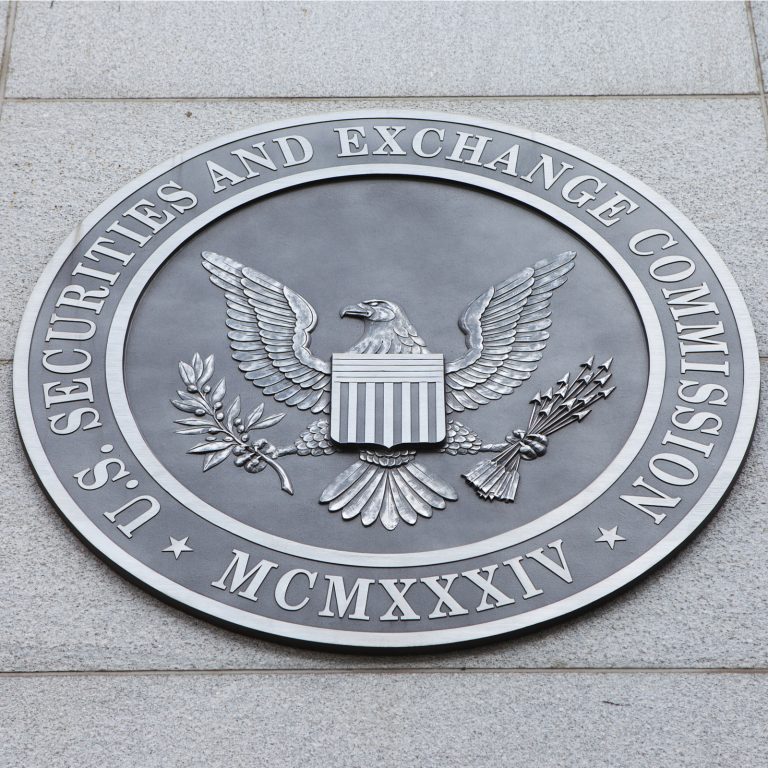2018-12-18 15:40 |
In just the last few months, the SEC has brought successful enforcement actions against EtherDelta, Paragon, Airfox, DJ Khaled and “Money” Mayweather himself, all predicated directly or indirectly on unregistered Initial Coin Offerings (“ICOs”). These settlements confirm that the SEC can and will target domestic ICOs for enforcement. But what about foreign ICOs? All those geo-fenced, “no Americans” ICOs that were launched in the last few years?
Disclaimer: This article is not intended as legal advice and does not establish an attorney-client relationship with any party.
This is no mere an academic exercise. Many companies offering these coins went to significant lengths to avoid the SEC’s jurisdiction. This article briefly analyzes the question of the SEC’s ability to bring a civil enforcement action concerning a foreign ICO, as well as the Department of Justice’s (DOJ) ability to assert criminal charges, and that of private party plaintiffs’ ability to sue for damages under state or federal securities laws. The information and analysis presented here is by no means comprehensive. Please consult your own counsel.
TL;DR A 2010 Supreme Court case, Morrison v. National Australia Bank, Ltd., held that American securities laws (which prohibits using manipulative or deceptive devices in the sale of securities) only applied outside of the United States “in connection with the purchase or sale of a security listed on an American stock exchange, and the purchase and sale of any other security in the United States.” This is called the “Transactional Test.” Prior to this ruling, most courts applied a “conduct and effects” test, which was broader and considered a number of factors. Morrison created a “bright-line rule.” At the same time that Morrison was being considered, Congress was passing the Dodd-Frank Act. Ultimately, Dodd-Frank was signed into law only a month after the Supreme Court issued its opinion in Morrison. Language was added to Dodd-Frank which tried to reassert the “conduct and effects” test for the SEC’s regulatory jurisdiction. But the language only addresses a federal court’s jurisdiction, not the SEC’s jurisdiction. Read literally, the Dodd-Frank language is superfluous. In any event, assuming it is effective, the Dodd-Frank language only applies to the SEC’s regulatory reach, not the DOJ’s authority to bring criminal actions, or private lawsuits by individuals. Those likely are still governed by Morrison. So far, the question of whether Dodd-Frank actually is effective still lingers, thus reinvigorating the broader “conduct and effects” test, has been avoided by every court, save one. In SEC v. Traffic Monsoon, the District of Utah ruled that the Dodd-Frank language overruled Morrison, and the “conduct and effects” test applied to the SEC’s regulatory powers. The matter was immediately certified for appeal (which is rare) and the Tenth Circuit appellate court is currently considering the issue. Morrison and Dodd-FrankPrior to the Morrison decision in 2010, most courts applied a “conduct and effects” test to the question of whether a foreign transaction fell within the ambit of American securities laws. Under this test, American law applied to the transaction if:
“significant wrongful conduct related to the transaction occurred in the United States or if the wrongful conduct had a substantial effect in the United States or upon United States citizens.”
This standard (especially the second part) greatly enlarged the domain of American law. Indeed, a creative jurist could conceive of any number of “substantial effects” on the United States or its citizens for virtually any foreign transaction, and many courts did just that.
The main problem with this approach is that there is a well-settled presumption against the extraterritorial application of law—that is, unless Congress says a law applies abroad, we’re (generally speaking) going to assume it doesn’t. And nothing in this particular law says it applies abroad. When the Supreme Court took up Morrison, this presumption was central to the Court’s decision.
The Court essentially said that because there is a presumption against extraterritoriality, and because the “conduct and effects” test applies American securities law to a broad swath of foreign transactions, we need a better test. We need a test that respects other nations’ securities laws and does not go too far in applying our own. Most of all, we need a test that reflects the presumption (and thus the reality) that securities laws do not have extraterritorial application.
So the Supreme Court overruled the “conducts and effects” test announced a new test, the “Transactional Test.” The Transactional Test is a follows: American securities law applied “only in connection with the purchase or sale of a security listed on an American stock exchange, and the purchase or sale of any other security in the United States.”
This is a simple, bright-line rule. No more speculation about potential effects. Is the security on a US exchange or was it bought or sold in the U.S.? If yes, U.S. law applies. If no, it doesn’t. Of course it is not quite that simple, and since Morrison the test as applied has seen complications, but it is much clearer than the “conduct and effects” test. For the company seeking to avoid American regulations, Morrison was a godsend.
And it almost lasted a month. While Morrison was under consideration, Congress was debating Dodd-Frank. And Dodd-Frank added a provision to both the Securities Act and the Exchange Act, stating that the federal district courts had “jurisdiction” over any proceeding brought by the SEC involving:
“conduct within the United States that constitutes significant steps in furtherance of the violation . . . or conduct occurring outside outside of the United States that has a foreseeable substantial effect within the United States.”
This sounds a lot like the old test and indeed that is exactly what the SEC continues to argue—namely, this language overrules Morrison and means that the “conduct and effects” test applies in determining whether the SEC can bring a regulatory action predicated on a foreign investment.
There is only one problem—the language doesn’t say that. It says the district court has jurisdiction over the regulatory action, not that the SEC may validly state a claim. This was always true. A federal court always had jurisdiction, if only to tell the SEC it was reaching too far. So the language might just be meaningless surplusage and it looks like Congress screwed up.
Undeterred, the SEC has very consistently argued, using legislative history and canons of statutory construction (rules for reading laws), that Congress meant to expand its regulatory authority and the reference to district courts was a drafting error. But this question—whether Dodd-Frank overruled Morrison with respect to the scope of the SEC’s regulatory jurisdiction—has been conspicuously avoided by lower courts.
Very recently, the issue was finally addressed by that hotbed of securities law, the District of Utah. The court in SEC v. Traffic Monsoon, LLC ruled that Dodd-Frank did in fact overrule Morrison and that the “conducts and effects” test governed the SEC’s regulatory reach. In a somewhat unusual—but in this case proper—move, the Court immediately certified the issue for appeal before the Tenth Circuit appellate court. That matter is pending as of the date of this writing.
What it All MeansThere are three ways (at least) to get in trouble for doing an improper ICO:
(i) investors can sue, (ii) the SEC can bring a civil regulatory action seeking fines and injunctions, or (iii) the DOJ can bring a criminal action and try to put people in jail.The question for any of these actions is if American law applies and may it be enforced by the government or aggrieved investors? For (i) and (iii), it is likely that Morrison remains the law of the land. Accordingly, at a minimum, foreign offerors will need to examine whether their ICO passes the Transactional Test in determining whether they are vulnerable to American securities law.
The outstanding question is with respect to (ii). Can the SEC go farther than the DOJ and private plaintiffs? The bottom line is that it is too early to say. The only court to confront the issue thus far has said yes, but that ruling is currently under review and the appellate court’s decision will in no way be binding on courts in other jurisdictions, like California and New York. Of course, application of either test is fact-sensitive and complex, but there can be no question that the Transactional Test provides a clearer path to steering clear of American securities law.
The post ICOs and the SEC’s Extraterritorial Jurisdiction: A Brief Primer appeared first on CryptoSlate.
origin »Bitcoin price in Telegram @btc_price_every_hour
ICOS (ICOS) íà Currencies.ru
|
|
















